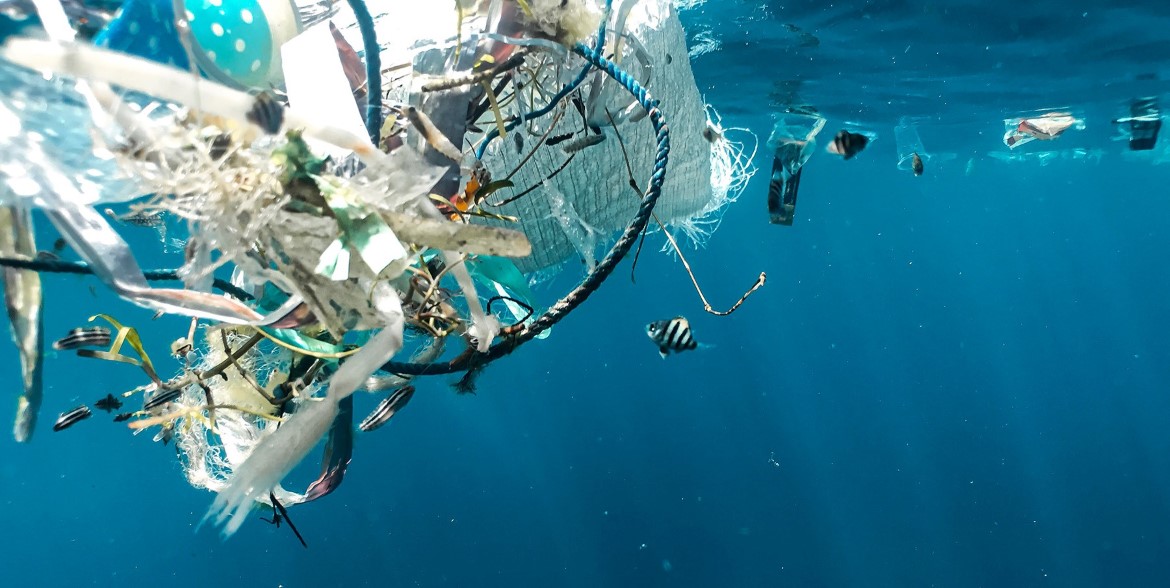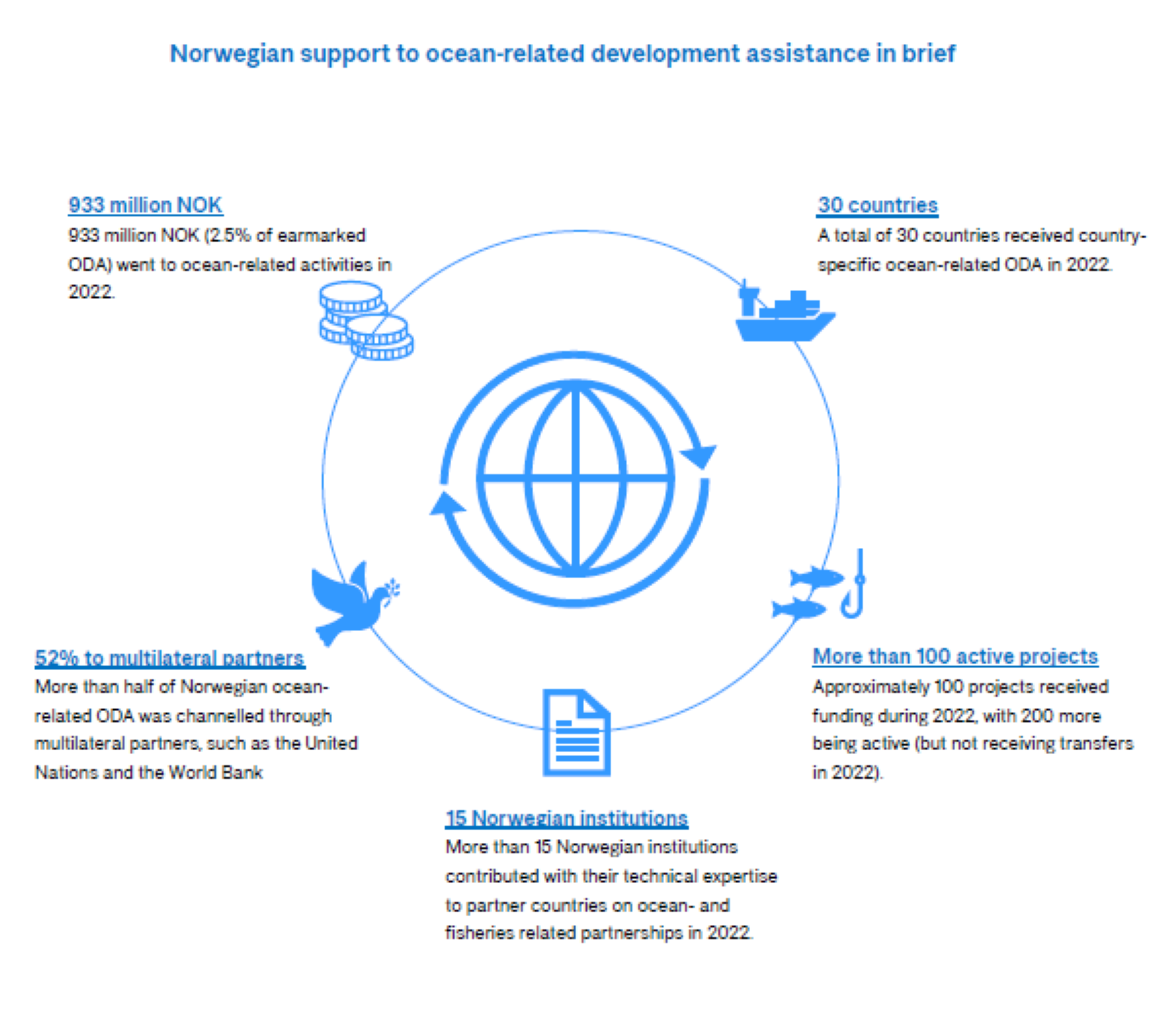
New report: Marked increase in Norwegian ocean-related development cooperation in the "Super Year for the Ocean"
The report Making Waves - Norway's support for a sustainable ocean shows how the Norwegian ocean-related development cooperation was spent in 2022, the " Super Year for the Ocean". The year 2022 brought several international milestones in international maritime cooperation. Among other things, the nations of the world agreed to start negotiations for a new global agreement against plastic pollution of the oceans.
Marine litter and pollution, climate change, and illegal, unreported, and unregulated fishing are some of the biggest challenges for the ocean and key focus areas for Norwegian ocean-related development cooperation.
– More than three billion people depend on the ocean as a source of food, work, and energy. Taking care of the ocean is crucial to combating poverty and reversing the climate crisis. Norway's contribution plays an important role in the work for a cleaner and healthier ocean, says Bård Vegar Solhjell, Director General of Norad.
Over the past five years, Norwegian ocean-related development cooperation has increased from NOK 628 million in 2018 to NOK 933 million in 2022. Last year, ocean-related development cooperation was distributed among more than 100 projects in 30 countries, including Mozambique, Ghana, Kenya, India, Indonesia, and Colombia. 52 percent of the funds went to multilateral partners such as the UN and the World Bank. More than 15 Norwegian institutions contributed their technical expertise on oceans and fisheries to partner countries.
The ocean puts food on the table
A combination of climate change, loss of biological diversity, and overexploitation of resources and pollution, threatens the ocean and puts pressure on the world's food security.
– Norwegian ocean-related development cooperation helps realize the opportunities and potential that lie in the ocean, as well as overcoming the major challenges we are facing. Working to ensure that the poorest and most vulnerable people of the world continue to be able to benefit from the sea is the basis of all marine aid, says Minister of International Development Anne Beathe Tvinnereim (Centre Party), pointing out especially the connection between small-scale fishing and food security:
– A key move is to strengthen the knowledge and rights of small-scale fishermen. They are important contributors to food security, the minister emphasizes.
Last year, Norwegian aid contributed among other things to strengthening small-scale fishermen in Colombia. As a result of the Norwegian-supported EcoGourmet programme, fishermen and others involved in the value chain receive on average 65 per cent more for their fish than before.
Global efforts against plastic and marine litter
Every year, between 9 and 14 million tonnes of plastic are released into the ocean. Without new and effective measures, an increase to 23-37 million tonnes is expected by 2040.
At the UN ocean summit in Paris last week, world leaders agreed on the next step towards an international plastic agreement. Norway has been one of the initiators of a global agreement against plastic pollution and has a central role in the negotiations.
Norway has committed to spending NOK 1.6 billion in the period 2018-2024 combating marine litter and microplastics in the world's oceans.
– Plastic pollution knows no national borders. That is why binding international cooperation is so important. The world took an important and necessary step closer to a global plastics agreement during the international negotiations in Paris last week, but there are still many demanding questions that need to be resolved. Norway is impatient and wants an international agreement against plastic pollution both for nature's sake and to protect people's health, says Minister of climate and environment, Espen Barth Eide (Labour Party).
Good waste management on land is essential to prevent marine littering. Vietnam is one of many countries where waste management is largely left to the informal sector.
Here, Norwegian aid supports, among other things, the Waste Workers programme where 1,800 waste workers, primarily women from poor families who work in the informal sector, have received training in better and more efficient handling of waste. In addition, they learn how to talk to people about keeping nature and surroundings free of litter. They have also gained access to social services, increased income, and improved living conditions.
Norwegian aid programmes
Norwegian ocean-related development cooperation is largely structured around three aid programmes: Oceans for development , Fish for development , and The Norwegian aid program against marine litter and microplastics . The core of the programs is knowledge sharing, including bilateral cooperation with public institutions. The effort aims for a cleaner and healthier ocean, sustainable use of ocean resources, the ocean as a source of food and jobs and the food of the ocean as an important contribution to increasing food security.
Examples of Norwegian ocean-related development cooperation in 2022:
- Norway supports the work to establish marine protected areas in line with the goal of protecting 30 percent of ocean and land by 2030 through, among other things, the Blue Action Fund . The fund also works to strengthen the living conditions of the coastal communities that depend on these areas. They are now working with approx. 300,000 km 2 of marine protected areas around the world, reaching more than 350,000 people who live in these areas.
- The research vessel Fridtjof Nansen conducts important research in unexplored areas and contributes to more sustainable fishing.
- Norway supports several partners in the fight against illegal fishing in West Africa, where the problem is huge. This involves capacity building of national and regional authorities to enforce laws, as well as regional cooperation – as the problem does not respect national borders.
- In Colombia, Norway supports Conservation International's EcoGourmet programme, which strengthens the value chain for small-scale fishermen. This has led to fishermen and others involved in the value chain in the program receiving on average 65% more for the fish than before.
- In Vietnam, 1,800 waste workers, primarily women from poor families who work in the informal sector, have not only received training in better and more efficient handling of waste, but also how to talk to people about keeping nature and the environment free of litter. In addition, they have gained access to social services, increased income, and better living conditions.

